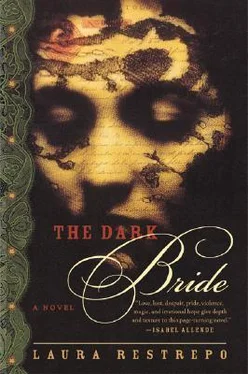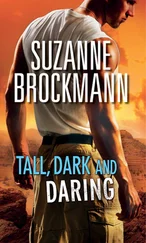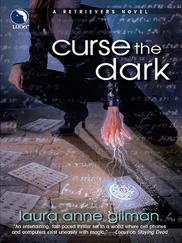“I wanted to check, so I turned to look at the stars,” says Sacramento, “but the sky must have been stormy, because I could only make out five or six, nothing in comparison to what the nights of a petrolero are like, dotted with stars, as the song goes. So I told Payanés not to exaggerate, that it wasn’t the time for it.”
“Sacramento and Payanés spent the night perched like monkeys in the tower, airing, through questions and accusations, the rivalry that had unsettled them and to which both of them avoided direct reference in order to mask the real issue,” says Machuca. “Every now and then they would throw stones down below against suspected threats, but they did so blindly in the pitch dark and without really intending to hit anyone. With them was Frank Brasco and later they were joined by old Pajabrava, who also climbed up to ensconce himself in the tower.”
“It hurts here, señor apostle,” said Sacramento to Pajabrava, sinking his index finger in his left side below his nipple. “Here, look, right here, it burns like the devil. You who know so much, can you tell me why when I think about a certain girl my heart hurts like this?”
“That’s why they put it in your chest,” Pajabrava told him. “As Yahweh revealed to Samuel, the heart is the organ of pain and of love, which are one and the same. They say that when you see it consumed by flames it’s a sign of divine fervor, and when it is pierced by an arrow it means that it’s repentant. If it is pierced by a knife it is enduring one of life’s extreme tests, if it is lanced with thorns it is bearing the torment of a human love, and if it is bleeding it has been abandoned.”
“Well, then, mine must have fire, arrow, knife, thorns, and bleeding, all at the same time, because it hurts like hell,” said Sacramento, who forgets about piety when it comes to expressing the furors of his spirit.
“After hours with that rope around my neck I suddenly found myself free and miraculously alive and that cheered me up,” Frank Brasco tells me, as the fire in his hearth warms the interior of his cabin in Vermont, “but I was struggling to understand the situation. The overall one, of course, which was chaotic, but also my own. The executives of the Troco, my compatriots, had abandoned me by refusing to negotiate for my life. So, one thing was clear and another unclear; it was clear that I had no allies and it was unclear who my real enemies were. The only one who proposed something concrete in the midst of that disorder was Payanés, who wanted us to defend Emilia, and it seemed right to me because I too felt affection for that great prehistoric hulk. In lieu of a better strategy, we entrenched ourselves with a good supply of projectiles to throw from the tower; that way we could prevent anyone from getting close enough to damage her and at the same time cover our backs. Night was in my favor, because it hid the fact that I was one of the gringos, whose heads the mob was demanding for being exploiters and imperialists. I was a renegade gringo, cast off by the rest, of course, but the rebels didn’t know that, so that with the light of day things were going to get more complicated for me. But there was still time before that happened and I thought, as they say in Colombia, Morning will come and we’ll see.”
Morning came and they saw. Outside the fence, surrounding the camp like a ring of steel, the army’s Fourteenth Brigade had taken up positions under the command of General Demetrio del Valle with all three hundred twenty of its men armed and wearing camouflaged uniforms.
“That same night the news of the insurrection at Camp 26 reached La Catunga and it brought us out of the bars,” relates Machuca. “We heard about everything, the flying balls of rice, the kidnapping of Frank Brasco, the resurrection of the veteran Lino el Titi as union leader. Then we putas gathered and decided to head over there with food and provisions, in the spirit of solidarity and knowing that the striking workers must be starving. When we approached, well into the morning, we found that the troops had the camp surrounded. The boys were fenced in like the famous warriors of Masada and it turned out to be true that they were howling with hunger.”
Then the professional women, nurturing and generous, elbowed their way up to the fence and showered the other side with bread, oranges, panela , plantains, bacon, and canned food, which the workers greeted like manna from heaven, since they’d had nothing in their stomachs after their breakfast the previous day, before the revolt erupted.
“Tell her, Machuca,” urges Fideo. “Tell her about Payanés and the beans.”
“The workers built fires, heating up the food in tins, and then ate heartily,” Machuca begins telling me, “while on the other side of the fence the troops, without food, watched them with faces like beaten dogs. So Payanés said: Do you want some? — offering part of his beans to an adolescent soldier who vacillated between accepting or not, between hunger and suspicion.”
“Don’t touch that!” shouted the captain to the young soldier, who stiffened upon hearing the order. “It’s probably poisoned…”
“How can you say that, hermano, do you think we’re inhuman monsters?” said Payanés indignantly. “Are you going to call me a murderer for feeling sorry for this boy who hasn’t had anything to eat? Think about it, hermano, the workers are people and so are the soldiers; there’s no need to tear each other apart…”
“You are subversives from the guerrilla…,” the captain tried to justify himself while the soldier hastily devoured the beans like a hungry child, because deep down that’s what he was.
“They’re good, these beans,” he acknowledged. “If they’re poisoned, well, the poison suits them. To your health!” the boy shouted to the men inside the fence, and they, following Payanés’s example, shared their bread with the soldiers only a couple of hours before events would lead them to a cruel confrontation.
The members of the battalion threatened to enter the camp, take it by force, and squash the rebels, but they hesitated. They put off the decision, as if giving themselves time, since they knew that once inside they wouldn’t be able to shoot because any stray bullet could ignite the wells and unleash hell. In the meantime the workers were reinforcing themselves. The strike committee was gathered in some secret corner; Lino el Titi resumed control and decreed that the strike must continue until victory or death. And this news, which spread like wildfire, caused the initial fear, confusion, and chaos to yield to greater fervor, worker unity, and a feverish determination to fight.
“Victory or death?” said Brasco. “You people speak in hyperbole. I would propose victory, or a reasonable alternative.”
“We made history,” says don Honorio Laguna, the old welder, and a few big tears of pride pour from his left eye, because the other one is false.
“It was then that he saw them, and in that instant he felt the full weight of his pain,” Machuca tells me.
“Who saw? Who did he see?”
“Sacramento. He saw those two.”
On that dawn of historical repercussions, Sacramento was floating in an air magnetized by Sayonara, as if sealed in a cave of solitary bliss. He turned to look toward the place where a cluster of women were causing a commotion by passing food over the fence. Among them he recognized the girl, although she was already a woman, dressed for combat in an oriental blouse with its tight row of cloth buttons covering her heart. She still had the same bearing of an undomesticated animal he had noticed the first day he had seen her, and her shiny hair was gathered at the crown of her head in a ponytail that fell wildly down her back.
Читать дальше












